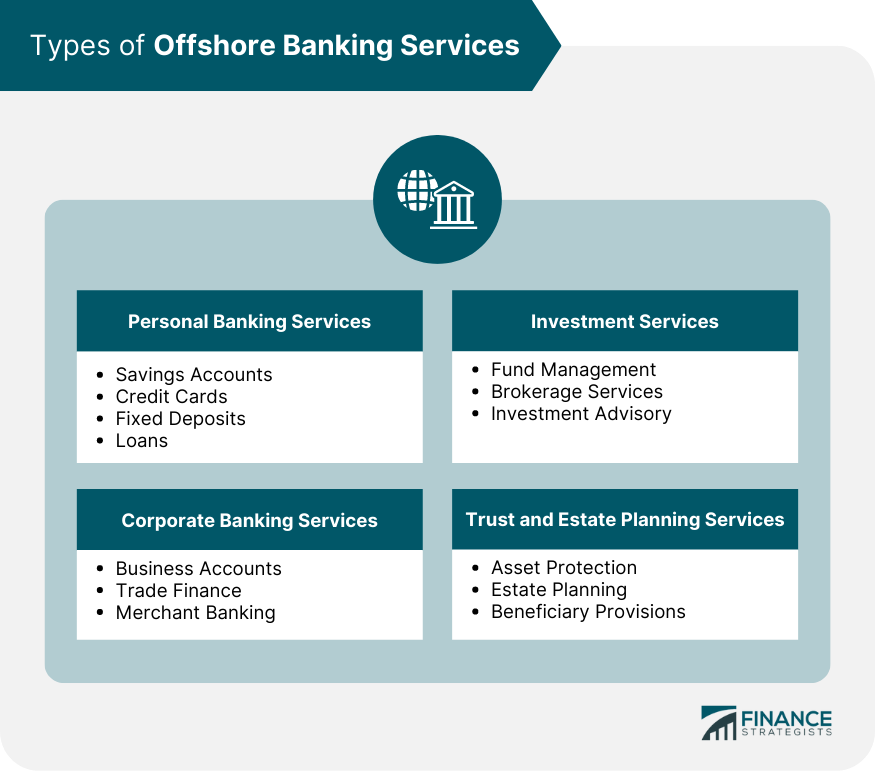Unlock Global Opportunities with Offshore Company Formation
Unlock Global Opportunities with Offshore Company Formation
Blog Article
Understanding the Legal Implications of Offshore Business Development

Lawful Framework for Offshore Firms
When developing an offshore firm, comprehending the lawful framework controling its formation and procedure is crucial for conformity and danger monitoring. Offshore firms run under specific regulations and laws that vary from those of onshore entities. The legal framework for offshore business normally includes stipulations for firm enrollment, investor requirements, supervisor duties, and tax obligation commitments.
Firm registration includes sending the essential paperwork to the suitable governing authorities in the chosen jurisdiction. This procedure typically needs in-depth details regarding the business's framework, shareholders, and intended activities. Furthermore, overseas companies have to adhere to details shareholder demands, such as preserving a register of investors and keeping this details as much as date.
Supervisors of offshore companies have fiduciary tasks to act in the finest passions of the business and its shareholders. By adhering to the legal framework regulating overseas firms, companies can run with confidence while decreasing legal threats.


Tax Implications and Rules
Recognizing the tax effects and guidelines is vital when considering the establishment and procedure of an overseas business. Tax obligations play a crucial duty in the decision-making process of whether to establish up an offshore entity. Offshore companies are commonly based on desirable tax regimes, using minimized or no tax obligation rates on foreign-earned earnings. However, it is vital to navigate these tax benefits very carefully to ensure compliance with both the laws of the overseas jurisdiction and the home country.
Tax obligation regulations for overseas companies differ considerably throughout jurisdictions, and it is critical to look for skilled advice to comprehend the specific demands and responsibilities. Failure to follow tax regulations can cause serious repercussions, including large penalties, reputational damages, and even lawsuit. In addition, offshore jurisdictions may have reporting responsibilities to disclose monetary details to pertinent authorities. Therefore, comprehensive expertise of tax legislations and laws, along with appropriate tax planning, are necessary to guarantee the certified and effective procedure of an overseas company.
Compliance Needs and Reporting
Making certain conformity with regulative needs and preserving exact coverage are essential elements of handling an offshore company efficiently and transparently. Offshore companies must adhere to the laws and policies of both the territory in which they are integrated and any kind of other relevant territories where they conduct company. Conformity demands typically consist of filing yearly returns, financial statements, and tax reports with the suitable authorities. Failure to fulfill these commitments can lead to penalties, fines, read this post here or even the abrogation of the company's registration.
In enhancement to regulative compliance, overseas business are commonly see here based on reporting needs to guarantee transparency and prevent illegal activities such as cash laundering or tax evasion. Reporting obligations may include disclosing info concerning the business's ownership structure, financial activities, and beneficiaries. This info might need to be shown to regulative bodies, tax authorities, or other governmental agencies, relying on the jurisdiction.
Preserving accurate and thorough records is essential for showing conformity and reacting to any type of queries or audits efficiently. Offshore companies should carry out robust reporting mechanisms and interior controls to make certain that they fulfill all lawful demands and run with integrity.
Asset Protection and Privacy Laws
In the realm of overseas business formation, a critical factor to consider is the interaction between possession security approaches and personal privacy laws. Offshore jurisdictions frequently use boosted asset security mechanisms that secure properties from possible dangers such as suits, lenders, or political instability in the home country. By structuring possessions within an offshore firm, individuals can guard their wealth and diversify their holdings throughout different legal frameworks. In addition, privacy regulations in overseas jurisdictions contribute to maintaining privacy and anonymity for business owners. These regulations limit the disclosure of sensitive information, making it challenging for outside parties to access information concerning the firm's procedures or possession framework. This degree of personal privacy can be beneficial for people seeking to secure their possessions from public analysis or rivals. Nevertheless, it is crucial for people to browse these regulations ethically and transparently, guaranteeing conformity with both offshore guidelines and the lawful requirements of their home country. Ultimately, comprehending the detailed connection in between possession security techniques and privacy legislations is vital when thinking about offshore business development.
Threats and Obstacles to Think about
When venturing right into offshore firm formation, sensible factor to consider of prospective threats and difficulties is important for notified decision-making and calculated preparation. Additionally, political More hints instability or modifications in overseas territories can position a danger to the continuity of operations and the security of properties held by the overseas company.
Difficulties may likewise arise concerning the complexity of offshore company structures and the requirement for professional lawful and economic suggestions to browse the elaborate regulative frameworks of different jurisdictions (offshore company formation). Maintaining conformity with differing worldwide laws and policies, in addition to prospective language barriers and social differences, can further make complex the offshore firm formation procedure. It is vital to be mindful of these threats and obstacles before waging offshore company development to mitigate prospective mistakes and make certain a legitimately sound and smooth establishment
Final Thought
To conclude, offshore firm development entails browsing intricate legal frameworks, tax effects, conformity requirements, and personal privacy laws. Understanding these facets is vital for minimizing obstacles and risks connected with offshore service operations. It is essential for people and services thinking about offshore company formation to seek specialist support to make certain conformity with laws and to shield their properties properly.
The lawful structure for overseas business generally includes arrangements for firm registration, investor requirements, supervisor obligations, and tax responsibilities.
Directors of offshore companies have fiduciary obligations to act in the finest interests of the firm and its shareholders. By sticking to the lawful framework controling overseas firms, organizations can operate with self-confidence while reducing lawful dangers.
Additionally, political instability or modifications in offshore jurisdictions can present a threat to the continuity of operations and the defense of assets held by the offshore firm. - offshore company formation
In verdict, offshore business formation involves browsing complex lawful structures, tax obligation ramifications, conformity needs, and privacy legislations.
Report this page